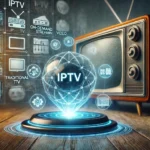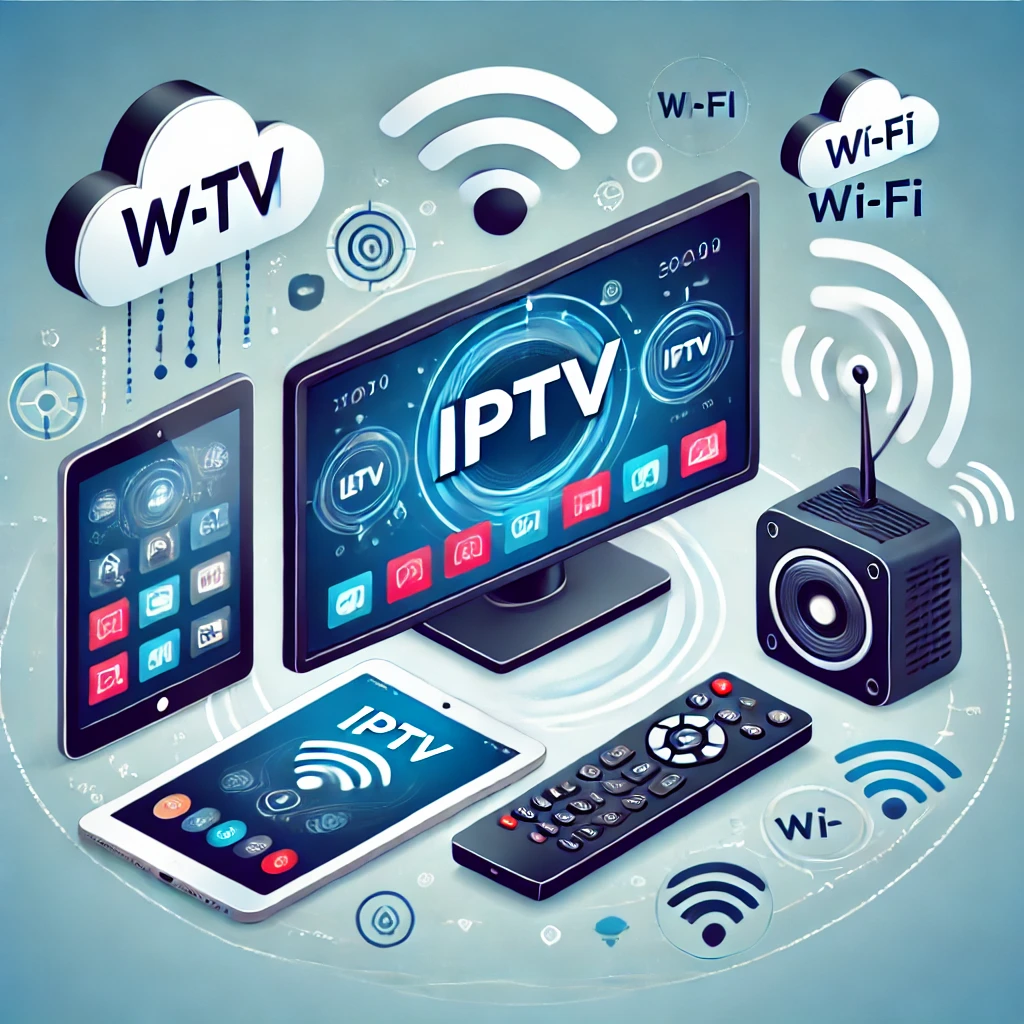Understanding IPTV: The Future of Television In the last decade or so, the way we watch television has changed quite a bit. Viewers have long been relegated to cable or satellite broadcasts. Enter IPTV, or Internet Protocol Television, a brand-new service that delivers television programming and video content over the Internet. In this blog, I will go through in detail what IPTV is, how it works, its pros and cons, and the types of IPTV services available.
What is IPTV?
What does IPTV stand for? Internet Protocol Television (IPTV) refers to the delivery of television services over the Internet. Unlike the traditional approaches to television such as by cable or satellite, IPTV transmits content directly to the viewer using the Internet. Based on this technology, users can access many live TV channels and on-demand video content available through internet-connected devices, including smart TVs, smartphones, tablets, and computers.
Key Features of IPTV
On-Demand Content: You can watch shows and movies whenever you want, it’s not tied to a broadcast schedule.
Live Streaming: It means that users can watch live broadcasts in real-time.
Multi-Device Support: It provides content from various devices at your convenience.
Understanding the Differences Between IPTV and Traditional Cable TV
As technology continues to evolve, the way we consume television content has also changed significantly. Two of the most popular options today are Internet Protocol Television (IPTV) and traditional cable TV. Each offers unique features, benefits, and drawbacks that cater to different viewer preferences. Here’s a comprehensive comparison of the two.

Delivery Method
- IPTV: This service delivers content over the internet using Internet Protocol networks. It allows users to stream live TV and on-demand content via various devices like smart TVs, smartphones, and computers. This flexibility means viewers can watch shows anytime, anywhere, as long as they have a stable internet connection
- Traditional Cable TV: In contrast, traditional cable TV relies on coaxial or Fiber-optic cables to transmit signals directly to a cable box in the home. This method requires physical infrastructure and is generally limited to specific geographic areas
Content Access and Flexibility
- IPTV: One of the standout features of IPTV is its versatility. Users can access a vast library of content, including video-on-demand (VOD), catch-up TV, and interactive guides. This allows for a more personalized viewing experience where viewers can choose what to watch and when without being tied to a fixed schedule
- Traditional Cable TV: Cable TV typically offers a set package of channels with limited customization options. While it may include premium channels or specialty packages, viewers often have to adhere to a predetermined schedule for programming
Quality and Reliability
- IPTV: IPTV can provide high-definition (HD) and ultra-high-definition (UHD) content, enhancing the viewing experience with superior picture quality. However, it is heavily dependent on internet speed; a slow connection can lead to buffering or interruptions
Additionally, IPTV services are less susceptible to weather-related disruptions compared to satellite services
- Traditional Cable TV: Cable services generally offer reliable performance with consistent signal quality that is less affected by internet issues. However, they may not always provide the same level of picture quality as IPTV when it comes to HD content
Cost Structure
- IPTV: Typically, IPTV services operate on subscription models with various pricing tiers based on channel selection and features. This often results in lower overall costs compared to traditional cable since users can avoid expensive equipment fees associated with cable boxes or satellite dishes
- Traditional Cable TV: Cable subscriptions tend to be more expensive due to the cost of maintaining physical infrastructure and providing hardware. Additional fees for premium channels or equipment rentals can further increase monthly bills
User Experience
- IPTV: The user interface for IPTV services is often more modern and user-friendly, featuring customizable options like creating playlists or adding favourite channels. Many IPTV platforms also offer features like electronic program guides (EPG) that enhance navigation
- Traditional Cable TV: While cable TV interfaces have improved over time, they still often lag behind IPTV in terms of customization and ease of use. Users may find navigating through channels less intuitive compared to streaming platforms
How Does IPTV Work and What is IPTV?
What is IPTV used for? Internet Protocol Television (IPTV) is the term used to refer to the delivery of television and video content over the Internet. Unlike traditional broadcasting sending the signals to all viewers at the same time (multicast), IPTV uses unicast technology. It sends a unique stream to each viewer when they request, thereby improving quality and reducing bandwidth wastage.
Here’s how IPTV operates:
User Request: Through an IPTV app a user chooses a program.
Data Transmission: After that, the request travels over the Internet to the IPTV provider’s servers.
Content Delivery: The content we want to have is usually requested and the provider finds it so that he can write it as data packets to send over the internet.
Playback: Data packets are decoded on the user’s device and the video stream is shown.
Types of IPTV Services
What is IPTV services? IPTV encompasses several types of services tailored to different viewing needs:
Live IPTV: It streams live television broadcasts in real time.
Video on Demand (VoD): It enables users to watch their content when they want to, from a library of available videos.
Time-Shifted TV: It allows users to pause, rewind, or record live broadcasts so they can watch it later.
Advantages of IPTV
Is there any advantage to using IPTV? For many, the answer is yes. IPTV offers different benefits:
Flexibility: They can watch content anytime and anywhere as long as they have an internet connection.
Cost-Effectiveness: A lot of IPTV services are cheaper than a regular cable subscription.
High Quality: Users can stream high definition with no interruptions with a reliable broadband connection.
Interactive Features: Most IPTV services feature such features as personalized recommendations, catch up TV, integrated apps for extra functionality.
Disadvantages of IPTV
Despite its advantages, IPTV does have some drawbacks:
Dependence on Internet Connection: A good connection, if not stable and fast, can present a problem: buffering.
Limited Availability: IPTV services aren’t available in all regions and some content is limited because it might be under some kind of license agreement.
Potential for Service Interruptions: Service quality can be affected by network congestion or outages.
What is IPTV and is it Legal?
A common question is: what is IPTV and is it legal? The provider and the licensing of the content determines the answer. There are many legitimate IPTV providers with proper licensing agreements and work with complete legal services. However, some unauthorized providers could distribute copyrighted content without permission, which is illegal. To guarantee the law, it is necessary to choose a respected IPTV service.
Selecting the IPTV Service Provider:
When selecting an IPTV provider, consider the following factors:
- Content Library: Make sure the provider has shows and channels which you like to watch.
- Quality of Service: Check to see if the provider has great streaming that requires little or no buffering.
- Device Compatibility: See if the service is compatible with your device (smart TV, smartphone, etc.).
- Customer Support: In order to solve any problems, reliable customer service can be important.
Conclusion
IPTV is a major change in how television content is consumed. It is flexible and has extensive libraries and interactive features that suit the modern way to watch content, where convenience and personalization are most valued. IPTV, what is that and how do I get it? Put simply, it’s a service that delivers television to you over the Internet. If you want to start, then you need to search and select a distinguished supplier that is suitable for you. If you are exploring the realm of IPTV for live TV, video on demand or time shift viewing, knowing the meaning and working of IPTV will enable you to make informed decisions of your entertainment choices.
